Media Is Us
To Yonty, Robin, and Sky
Only the paradox comes anywhere near to comprehending the fullness
of life. Non-ambiguity and non-contradiction are one-sided and thus
unsuited to express the incomprehensible.
Carl Jung
Media Is Us
Understanding Communication
and Moving beyond Blame
Elizaveta Friesem
ROWMAN & LITTLEFIELD
Lanham Boulder New York London
Published by Rowman & Littlefield
An imprint of The Rowman & Littlefield Publishing Group, Inc.
4501 Forbes Boulevard, Suite 200, Lanham, Maryland 20706
www.rowman.com
6 Tinworth Street, London SE11 5AL, United Kingdom
Copyright 2021 by Elizaveta Friesem.
All rights reserved . No part of this book may be reproduced in any form or by any electronic or mechanical means, including information storage and retrieval systems, without written permission from the publisher, except by a reviewer who may quote passages in a review.
British Library Cataloguing in Publication Information Available
Library of Congress Cataloging-in-Publication Data on File
Names: Friesem, Elizaveta, author.
Title: Media is us : understanding communication and moving beyond blame / Elizaveta Friesem.
Description: Lanham : Rowman & Littlefield, [2021] | Includes bibliographical references and index. |
Summary: Exploring the nature of modern media, Friesem uses the fundamental principles of human communication to move away from the fear and blame that usually accompany discussions of new media technologies. The book employs the ACE model (from Awareness to Collaboration through Empathy) to build media literacy across professions and academic disciplines Provided by publisher.
Identifiers: LCCN 2021014645 (print) | LCCN 2021014646 (ebook) | ISBN 9781538150511 (cloth) | ISBN 9781538150528 (ebook)
Subjects: LCSH: Mass mediaSocial aspects. | CommunicationSocial aspects. | Blame. | Power (Social sciences) | Empathy.
Classification: LCC HM1206 .F75 2021 (print) | LCC HM1206 (ebook) | DDC 302.23dc23
LC record available at https://lccn.loc.gov/2021014645
LC ebook record available at https://lccn.loc.gov/2021014646
 The paper used in this publication meets the minimum requirements of American National Standard for Information SciencesPermanence of Paper for Printed Library Materials, ANSI/NISO Z39.48-1992.
The paper used in this publication meets the minimum requirements of American National Standard for Information SciencesPermanence of Paper for Printed Library Materials, ANSI/NISO Z39.48-1992.
Contents
Any big project is a result of collaboration between multiple individuals; Even a project like this book, which involved a lot of solitary reading, writing, and editing. Many of the people who helped me to make this manuscript happen may never know about it. Perhaps surprisingly, I myself wont know all of their names. I tend to agree with the French philosopher Roland Bathes, who believed that no author can really understand how culture and language speak through her. No matter how hard I try, I would not be able to list every contributor whose words and actions influenced this volume. Those whom I could think of are included here and in the bibliography.
Since I am such an introvert, only a few friends of mine ever found out that I was working on this book. I am grateful to all people who asked me about it and said some encouraging words, including Sahana, Urszula, Gabi, Sergio and Lizzy, Kelsey, Noni and David, Tanya and Val, Zoey and Geoffrey, Cynthia and Jay, Morgan Jaffe, Masha Mogilevich, Jana Romanova, Mary OConnor, Bert Mitchell, Gus Andrews, Sharon Bloyd-Peshkin, Jenn Midberry, and Susan Messer. (I included last names in instances where I felt that they were necessary for my friends to identify themselves.) More specifically, Sahana and Gabi, both so far away from me geographically, inquired about my progress multiple times, which I really appreciate; Morgan Jaffe edited the first draft of my first chapter; Gus Andrews shared insights about stages of the publishing processes; Susan Messer encouraged me by talking about her experiences of being a published author, and Sharon Bloyd-Peshkin helped me navigate my book contract. I am afraid I may be forgetting names of a few friends with whom I had brief conversations about the book along the way. I hope they will forgive me!
Special thanks go to Andrey Koshelev and Renee Hobbs, as well as to Garry Cooper. Renee has been my mentor in the field of media literacy for a number of years and boosted my self-confidence as I was learning to be a writer. I am also grateful for the tremendous help she provided by being my supporter as I was looking for a place to publish this book. Online conversations with Andrey helped me feel that I was not alone as I was working through some of the most challenging parts of the manuscript. During our meandering Messenger chats, he shared his insights about many different issues and sent links to thought-provoking sources. Last but not least, I want to thank Garry for asking great questions about my creative process, for showing interest in the ideas I developed in this volume, and for repeatedly pointing out the importance of my work. Thank you, Garry!
When I finally had the courage to start looking for a place to publish the manuscript, Elizabeth Swayze was the editor who believed in this project. Unfortunately, she had to step down soon after offering me the contract. Once that happened, Natalie Mandziuk guided me along the rest of the publishing process. I am grateful to Elizabeth and Natalie for their support, patience, and organizational skills.
My parents Olga and Nicolay have played a major role in the creation of this work by encouraging me to become an intellectually curious person that I am now. In the recent years, they asked me multiple times about the progress of my book. Having both parents support is one of the most important things that one can ask for to have a fulfilling life. Special thanks go to my maternal grandfather, Nicolay Mirniy, who taught me with his example to be detail-oriented and organized in my work and helped me to develop my love for reading.
Finally, this book would not be possible without conscious and unconscious contributions from my husband Yonty and my two sons: Robin and Sky. Yonty and I have many things in common, and we have also plenty of differences. Sometimes, he has been the devils advocate; on other occasions, he challenged my opinions. But more often than not, he has supported me by generously sharing concepts and sources that I used to develop my ideas. It is thanks to him that I started to explore media literacy and realized that empathy can be enhanced. This book would not be possible without him. At the time this manuscript is being prepared for publication, Robin and Sky have no clue about it, because they dont care much for books without pictures. They also dont know how often they provide me with opportunities to practice empathy and nonviolent communication! Indeed, it is by observing how they grow and learn that I have been able to gain some important insights about the human nature. Most importantly, when I feel stuck for some reason, there is nothing better than a snuggle with the two little devils to remind me that life is beautiful.
A few years ago, I was scrolling down my Facebook news feed when my eyes paused on an image shared by a friend. It was a screenshot collage from an ad for Dove body wash. Thanks to the post accompanying the image, my mind became immediately fixated on one fact: the picture appeared to show a Black woman transitioning into a light-skinned redhead. What I saw looked like a before and after kind of commercial, although a smiling young model was removing her shirt to reveal a completely different person (also wearing a shirt).

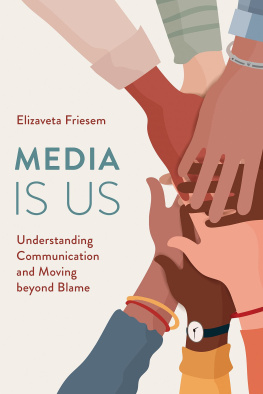

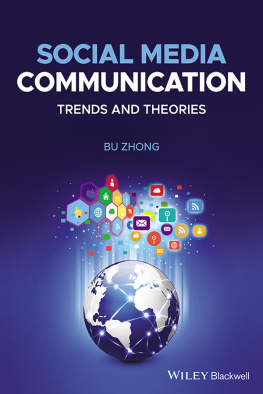
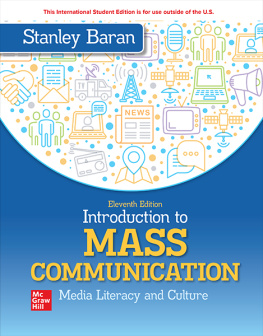
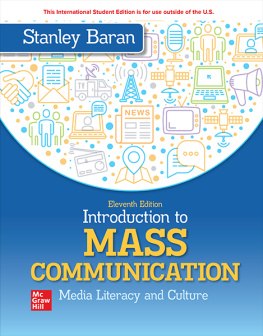
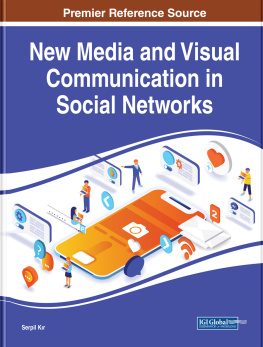

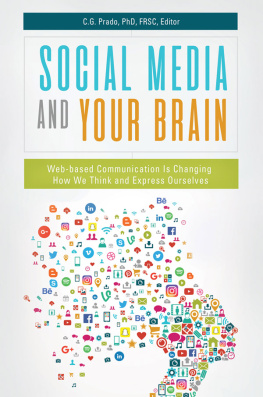

 The paper used in this publication meets the minimum requirements of American National Standard for Information SciencesPermanence of Paper for Printed Library Materials, ANSI/NISO Z39.48-1992.
The paper used in this publication meets the minimum requirements of American National Standard for Information SciencesPermanence of Paper for Printed Library Materials, ANSI/NISO Z39.48-1992.